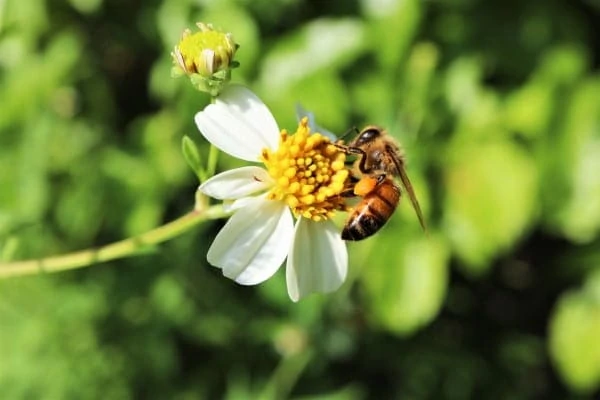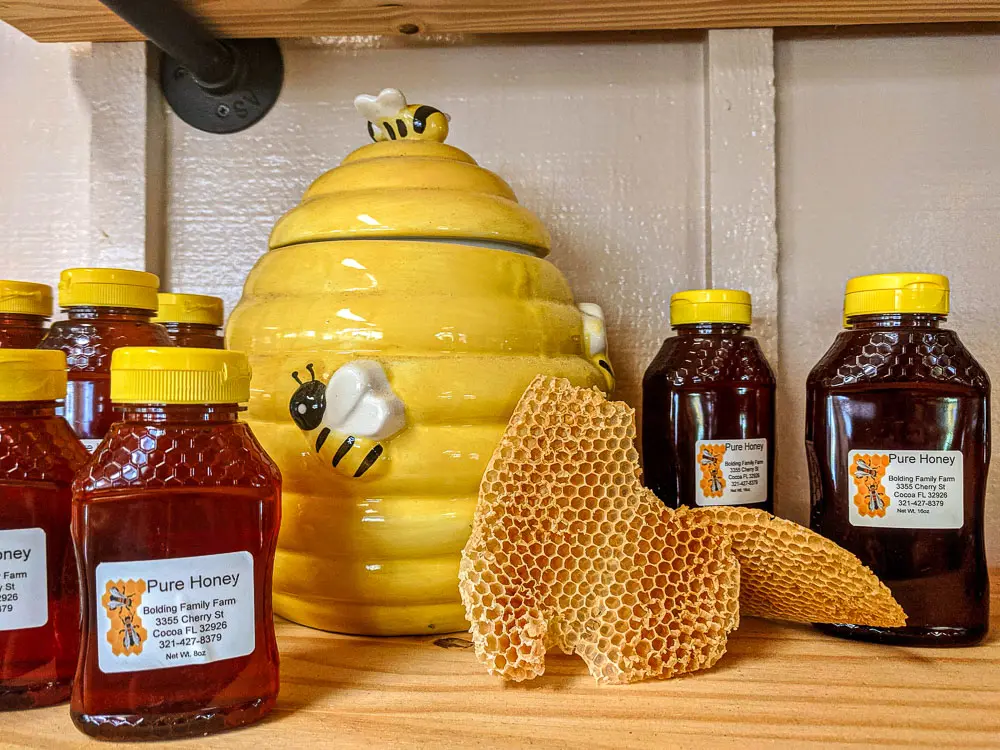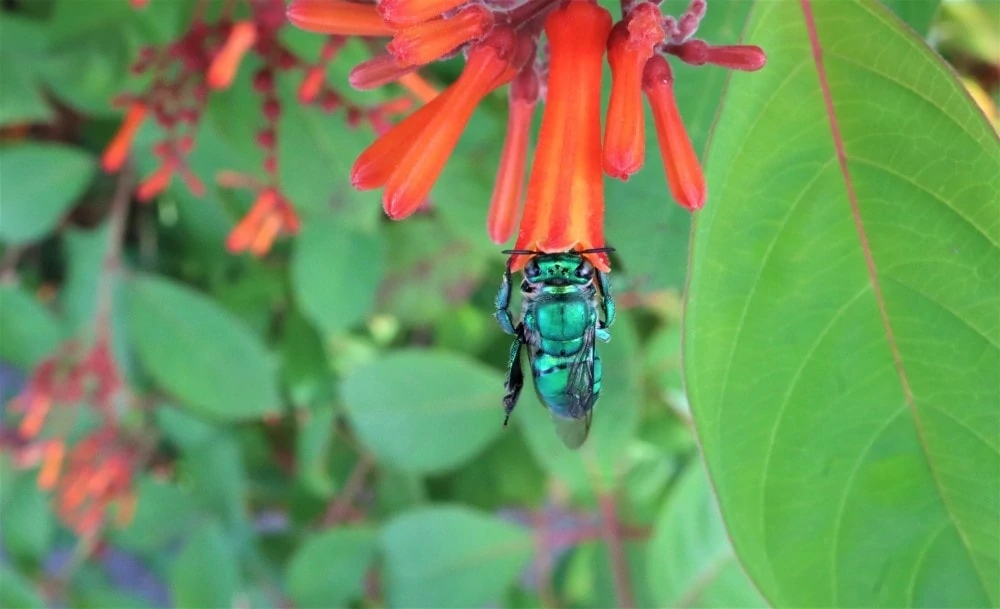by Amanda Rose Newton
Honeybees have been riding a wave of popularity in the last decade, largely due to their mysterious disappearance linked to colony collapse disorder.

After years of research, it has been determined that there are many compounding factors leading to the plight of the honeybee and there has been a great effort by beekeepers and home gardeners alike to help boost their numbers.
Food for Thought
One of the most famous pro honeybee campaigns in recent years has showcased your average grocery store and how empty and sad it would be once all the products that honeybees directly make possible were removed.
Over 1/3 of fruits, vegetables, and even grains we eat are pollinated by the honeybee. For every third bite of food you eat, you should thank a honeybee!
What do Honeybees Pollinate?
Honeybees are essential because they help transfer pollen from one flower to another, where it is then fertilized to produce fruits and seeds. The bees you see hanging out on your plants are female workers and feature specialized “baskets” on their back legs they use specifically for carrying pollen around. Some of this they take back with them to the hive to feed their young, and inevitably, some of it brushes off on additional flowers they visit.
Many plant species rely solely on insect or mammal pollinators in order to reproduce. Those of you who have grown squash might recall the same plant has a male and a female flower, and sometimes hand-pollinating is necessary when there is not a thriving bee population to assist you.
Honeybee Specialties
- Apples- Honeybees are often placed in orchards due to reliance
- Almonds- Bees are moved across the country in order to have enough pollinators for California’s almond harvest
- Kiwi
- Cashew
- Okra
- Starfruit
- Brazil Nuts
- Beets
- Potatoes
- Cabbage
- Papaya
- Tangerine
- Coffee
- Cucumber
- Squash
- Persimmon
- Loquat
- Buckwheat
- Fennel
- Strawberries
- Cotton
- Mango
- Avocado
- Allspice
- Cherry
- Runner Beans
- Pomegranate
- Rose Hips
- Sesame
- Eggplant
- Blueberry
- Cranberry
- Tomato
- Grape
- Black-eyed Peas
…and that is the short list! Bees will happily go to anything in bloom and can help promote healthy flower beds, robust herbs, and flowering trees.
Attracting Honeybees
If you plant it, they will come!
Honeybees can travel significant distances but always go to what is the closest to their hive. Ensuring there is something in bloom throughout the seasons will keep honeybees happy and healthy. This practice will also help with creating seasonal change in your garden, providing additional interest and curb appeal.

A win-win situation! Honeybees, like all animals, require water and the phrase “beeline” comes from the fact that bees will follow the same path back and forth to drink.
Providing a water source, be it a shallow dish with water, having a water feature, or even a birdbath can become a reliable drinking fountain. For those interested in learning more about what specifically to plant and how what you plant influences the flavor of honey produced by the bees, be sure to attend our Virtual Pollinator Workshops in September! Each includes kits to help get you started as well as become a honey connoisseur.
Florida Native Bees
Honeybees are not the only bees who are instrumental in keeping our favorite fruits and vegetables available. Unlike the European honeybee, many of our native bees are more specific in their selection of crops. Below is a quick look at a few of our native species:
Squash Bees- These cute fuzzy bees are easy to miss due to tiny size! As the name suggests, they solely pollinate squash, with pumpkins being a favorite.
Mason Bees- Also known as the Blue Orchard Bee, it is commonly found in orchards pollinating apples and stone fruits.
Bumble Bees- The familiar bumblebee has several distinct species here in Florida. They perform a unique feat known as “buzz pollination” where they vibrate against a tightly closed flower (think tomato) to shake the pollen loose.
Eastern Blueberry Bee- This grey-colored bee is a little difficult to spot unless you happen to have numerous blueberry plants. It will pollinate other plants but has an innate fondness for blueberries and uniquely fits the flower’s bell shape.
Sweat Bee- The brilliant metallic green color of this familiar bee is hard to miss. Neither is the fact that they love our sweat. If you have one land on you, just remember they are only after the salts in your sweat!

Celebrate ALL bees!
As World Honeybee Day approaches, don’t forget to raise a glass (wine and beer happen thanks to the bees, too) to our bee friends, whether honey or squash!
For those interested in learning more about beekeeping in Brevard, be sure to check out Brevard Backyard Beekeepers (North Brevard) or Brevard Beekeepers Association (South Brevard).


